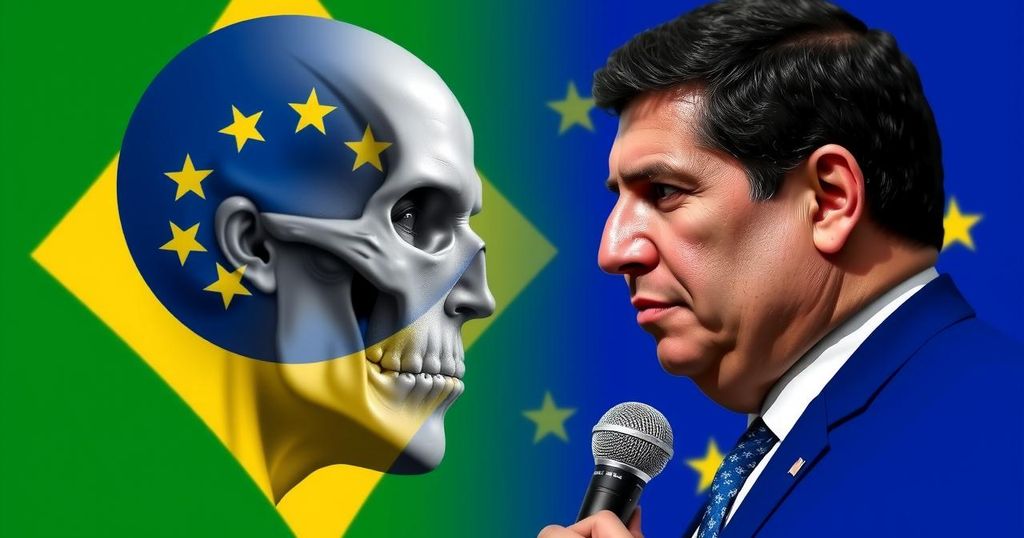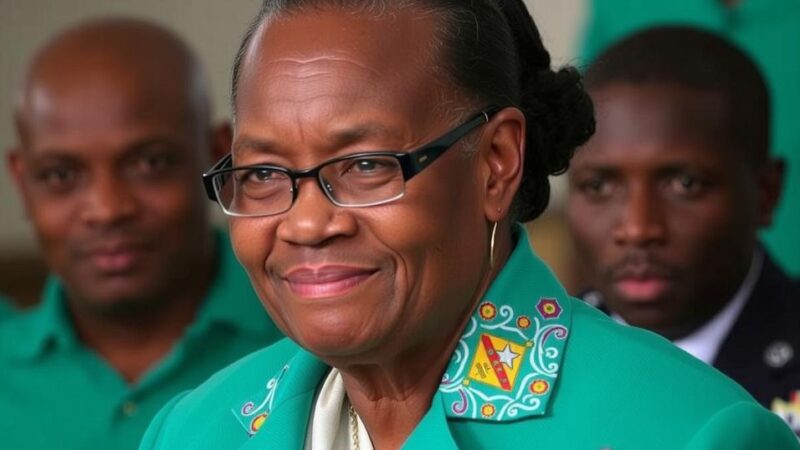Diplomatic tensions have escalated between Brazil and Venezuela after Brazil vetoed Venezuela’s entry into BRICS during the summit in Kazan, Russia. The Brazilian government did not provide a justification for its decision, which Caracas condemned as interference and a betrayal. The historical context of electoral disputes and past administrations continues to complicate relations, with both countries now awaiting further developments.
The recent BRICS summit in Kazan, Russia, witnessed escalating diplomatic tensions between Brazil and Venezuela following Brazil’s veto of Venezuela’s application for partnership within the bloc. This decision further complicates an already strained relationship stemming from the electoral confirmation of Nicolás Maduro as Venezuela’s president. Notably, President Lula of Brazil did not attend the summit due to an accident; instead, Minister of Foreign Affairs Mauro Vieira represented Brazil. Despite the significant nature of the veto, no public rationale was provided by the Brazilian government, prompting Venezuela to characterize Brazil’s move as a “stab in the back” and an unwarranted interference in its domestic affairs. Diplomats involved in the proceedings indicated that Brazil’s assessment was heavily influenced by the problematic conduct of the recent Venezuelan elections, which were contested by the opposition despite Maduro’s victory. Brazil’s Foreign Ministry has since asserted its trust in Venezuela’s electoral system while simultaneously initiating dialogue efforts with Colombia to address electoral transparency and to urge the Venezuelan government to publish detailed election results. In response, Venezuela has emphasized its claim to sovereignty regarding its electoral processes, insisting that such matters should be resolved internally. Notably, the Venezuelan National Electoral Council has yet to disclose the electoral results despite months passing since the elections. The Brazilian veto has been met with pointed criticism from Caracas, which argues that it reflects a continued legacy of animosity towards Venezuela stemming from the prior administration of Jair Bolsonaro. Maduro has claimed that Vieira had assured him during negotiations that Venezuela would not be obstructed from joining BRICS, thus heightening tensions further. Venezuela’s strategy has focused on blaming diplomat Eduardo Paes Saboia, aligning him with the prior administration’s attitudes. With regards to future relations, Lula’s advisor for international relations remarked that a significant amount of trust has been compromised. Following the veto, Brazilian diplomacy appears to be in a wait-and-see position, awaiting Venezuelan responses while preparing to potentially navigate negotiations for Venezuela’s entry into BRICS in the future, expected to be facilitated under Brazil’s presidency of BRICS in 2025.
This situation arises amidst a larger geopolitical context where Venezuela has faced isolation in international relations, particularly following the controversial elections that solidified Maduro’s presidency. The longstanding tensions between Venezuela and Brazil, particularly around electoral legitimacy and diplomatic ties, have been exacerbated by Brazil’s recent administrations. Historically, Brazil under Lula da Silva has promoted regional integration and cooperation among Latin American nations, a stance seemingly contradicted by the recent veto of Venezuela’s entry into BRICS. Moreover, the significance of Venezuela’s vast oil reserves further complicates the dynamics of energy politics associated with BRICS membership.
In conclusion, the diplomatic tensions between Brazil and Venezuela are indicative of deeper underlying issues regarding electoral legitimacy, historical relations, and geopolitical interests. Brazil’s veto of Venezuela’s BRICS entry not only strains bilateral relations but also raises questions about the future of cooperation and energy politics within the bloc. As Brazil prepares for its presidency of BRICS in 2025, the outcome of these tensions will be pivotal in shaping the regional political landscape and influence within the international community.
Original Source: www.brasildefato.com.br







